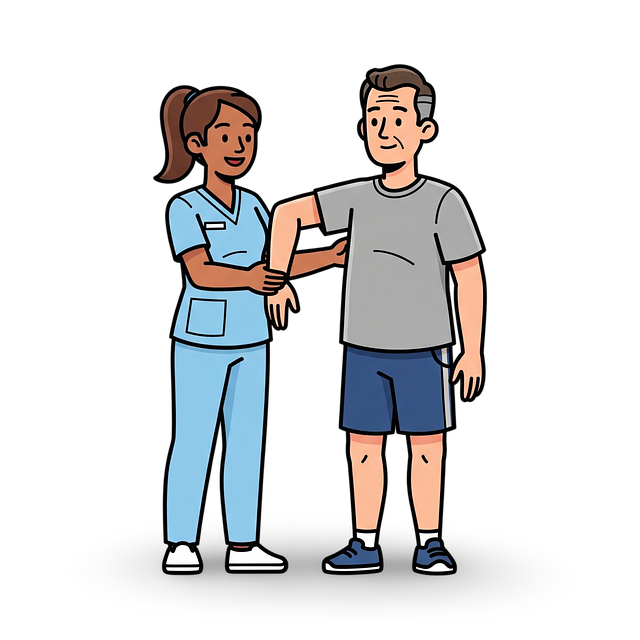Co-dependency, a common issue among friends and family of addicts, creates unhealthy dynamics hindering recovery. Co-dependency support groups offer a safe space for loved ones to connect, share experiences, learn coping strategies, set boundaries, and practice self-care. These peer-led groups facilitate emotional healing, provide crisis intervention training, and promote open dialogue with diverse perspectives on addiction. By integrating mindfulness, meditation, and personalized wellness plans, these groups support holistic well-being and encourage long-term recovery for both the individual and their affected loved ones.
Peer-led support groups offer a unique and safe haven for individuals affected by addiction within their families. Often, those grappling with co-dependency—a condition stemming from an addict’s behavior—face challenges navigating their emotions and relationships. This article explores the profound impact of co-dependency on loved ones and highlights the numerous benefits of peer-led support groups tailored to their needs. Through these groups, individuals find a community that fosters understanding and healing.
- Understanding Co-Dependency and Its Impact on Loved Ones
- The Benefits of Peer-Led Support Groups for Addict's Loved Ones
- Creating a Safe and Therapeutic Environment in These Groups
Understanding Co-Dependency and Its Impact on Loved Ones

Co-dependency is a complex emotional and behavioral issue that often affects loved ones of individuals struggling with addiction. It refers to an unhealthy pattern where a person becomes overly dependent on or involved in another’s addiction, sometimes even mirroring or enabling their behaviors. This dynamic can create a vicious cycle, hindering the recovery process for both parties. Co-dependent relationships are characterized by a deep fear of abandonment and a tendency to prioritize the needs of the addict over one’s own.
In these situations, co-dependency support groups for loved ones of addicts play a pivotal role in fostering healing and understanding. Such groups provide a safe, non-judgmental space where individuals can connect, share their experiences, and learn from one another. Through peer-led discussions, members gain valuable insights into the nature of addiction, develop healthier coping mechanisms, and acquire tools to set boundaries, promote self-care, and encourage their loved ones towards recovery. Additionally, these groups offer a sense of community and support, helping individuals navigate challenging situations with newfound resilience and mindfulness techniques for stress relief.
The Benefits of Peer-Led Support Groups for Addict's Loved Ones

Peer-led support groups offer a unique and invaluable resource for loved ones affected by addiction. These groups provide a safe haven where individuals can connect with others who truly understand their journey, fostering a sense of community and shared purpose. In contrast to traditional therapy settings, peer-led discussions allow members to gain different perspectives on coping mechanisms and recovery strategies. This dynamic encourages open dialogue and promotes emotional healing.
Co-dependency support groups for loved ones of addicts are particularly beneficial as they address the specific needs of this demographic. Many times, family members or friends struggle with their own issues related to addiction, either directly or indirectly. These support groups not only help them process these challenges but also equip them with crisis intervention training and sobriety support. By participating in such groups, individuals can learn healthy boundaries, develop effective communication skills, and access resources that can enhance their overall well-being and the chances of long-term recovery for their loved ones.
Creating a Safe and Therapeutic Environment in These Groups

In co-dependency support groups for loved ones of addicts, fostering a safe and therapeutic environment is paramount. Participants often share deeply personal experiences, and creating a non-judgmental space is key. Facilitators play a crucial role in establishing ground rules that encourage openness and empathy, ensuring every member feels heard and respected. This environment promotes mindfulness techniques for stress relief, allowing individuals to process their emotions and gain valuable insights from one another.
The atmosphere in these groups should holistically support well-being by integrating practices such as mindfulness meditation, yoga, and personalized nutrition plans. These holistic wellness programs cater to the mind, body, and spirit, facilitating deeper healing and personal growth. By combining traditional sharing circles with modern therapeutic techniques, co-dependency support groups offer a unique and effective space for healing and transformation.
Peer-led support groups offer a powerful resource for those affected by addiction, specifically focusing on co-dependency within families. By creating safe spaces for sharing experiences and insights, these groups provide a therapeutic environment that fosters healing and understanding. For the loved ones of addicts, participating in such groups can be transformative, offering not only emotional support but also practical strategies to navigate their unique challenges. This article has explored the benefits and importance of these co-dependency support groups in addressing the often-overlooked needs of those collateralally impacted by addiction.






